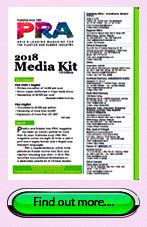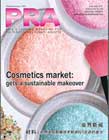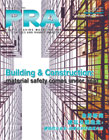PRA Chinese
Rubber Journal Asia Injection Moulding Asia Energy, Oil & Gas Asia
VISIT OUR OTHER SITES:
PRA Chinese
Rubber Journal Asia
Injection Moulding Asia
Energy, Oil & Gas Asia
Plant openings: Nippon Shokubai opens SAP/acrylic acid plants in Europe; Mitsui Chemicals ups capacity for nonwovens in Japan
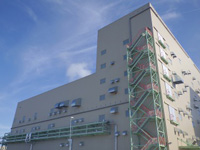
With the disposable diaper market in Asia witnessing steady growth in demand because of the increasing use of disposable diapers and the relaxing of China’s one-child policy, against the back of growth in the global market, companies are adding on capacity in Asia and in Europe. In recent years, there has also been dramatically rapid expansion in the market for high-quality premium disposable diapers, resulting in more efforts on the part of manufacturers to ramp up output.
Osaka-headquartered Nippon Shokubai’s subsidiary in Europe has opened new plants for superabsorbent polymers (SAP) and acrylic acid (AA) in Antwerp, Belgium, with an investment of EUR350 million. AA is a major raw material for SAP. By the end of 2018, it will have increased its capacity for acrylic acid from 780,000 tonnes/year in 2017 to 880,000 tonnes/year; while for SAP its capacity is upped from 610,000 tonnes/year to 710,000 tonnes/year.
SAP, a key material for diapers, is one of the core products of Nippon Shokubai Group. Also in Europe, SAP demand is expected to grow stably mainly in Central Europe and Eastern Europe. In order to meet the growth of demand, Nippon Shokubai enhanced its supply capability to European market by expanding its production facility. In addition, Nippon Shokubai newly established a production facility of AA, which is the main raw material for SAP so that it can consistently produce SAP from raw material in Europe. This has enabled Nippon Shokubai to further strengthen its global stable supply capability of SAP.
The European subsidiary was established in 1999. The recent expansion of the plant involved upping production capacity of SAP by 100,000 tonnes/year from the previous capacity of 60,000 tonnes/year while the 100,000-tonne/year acrylic acid plant is newly established.
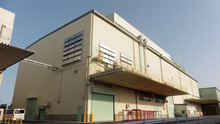
Meanwhile, Japanese compatriot Mitsui Chemicals has started commercial operations for high-performance nonwovens at its Nagoya Works site and at wholly owned subsidiary Sunrex Industry Co in Yokkaichi. The expanded facilities come in response to increasing demand from the disposable diaper market. It has added on 15,000 tonnes/year capacity in Nagoya and 6,000 tonnes/year at Sunrex. Following the enhancements to production at these sites, Mitsui Chemicals' global production capacity now stands at 103,000 tonnes/year.
Mitsui Chemicals’ says it long-term business plan positions Healthcare alongside Mobility and Food & Packaging as one of its targeted business domains to drive growth. With nonwoven business falling under the Healthcare business, the company aims for further expansion by supplying both Japan and the rest of Asia with high-performance nonwovens to support the growth of the region's premium diaper manufacturers.
The Japanese company says its high-performance nonwoven fabrics manufactured at Nagoya Works’ additional facilities offer superior elasticity. Both facilities have adopted an improved process that complements conventional spunbond manufacturing with proprietary technology. The additional facilities also bolster expansion of the company’s supply of high-performance nonwovens and will aid in further increasing the quality of premium disposable diapers and their range of applications.
Mitsui Chemicals says it will continue to capitalise on its proprietary technology as it further stabilises supplies to its customers and meets their growing and diversifying needs for high-performance nonwovens, contributing as a solution provider to a better quality of life (QOL) for people around the world.
(PRA)Subscribe to Get the Latest Updates from PRA Please click here
Copyright (c) 2018 www.plasticsandrubberasia.com. All rights reserved.

